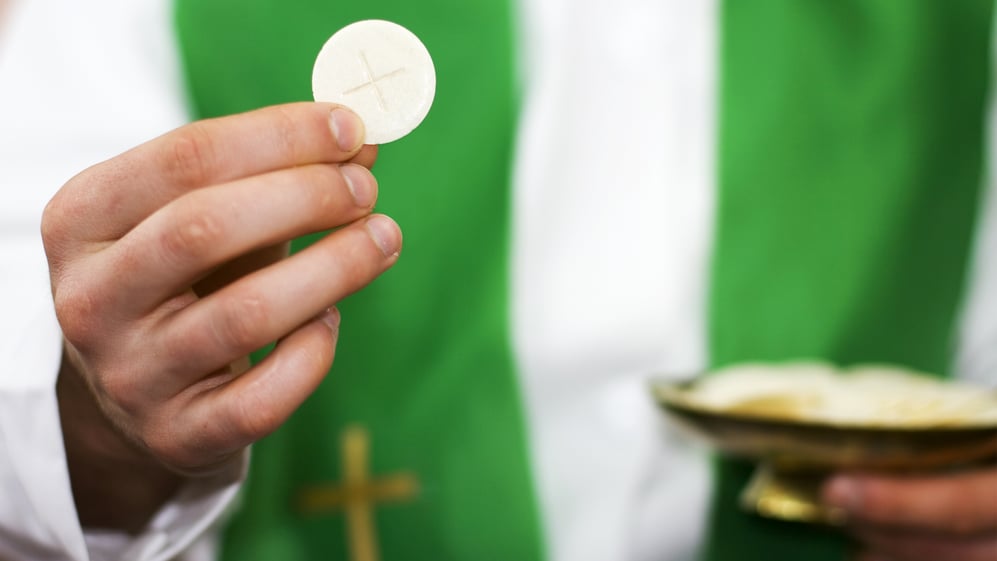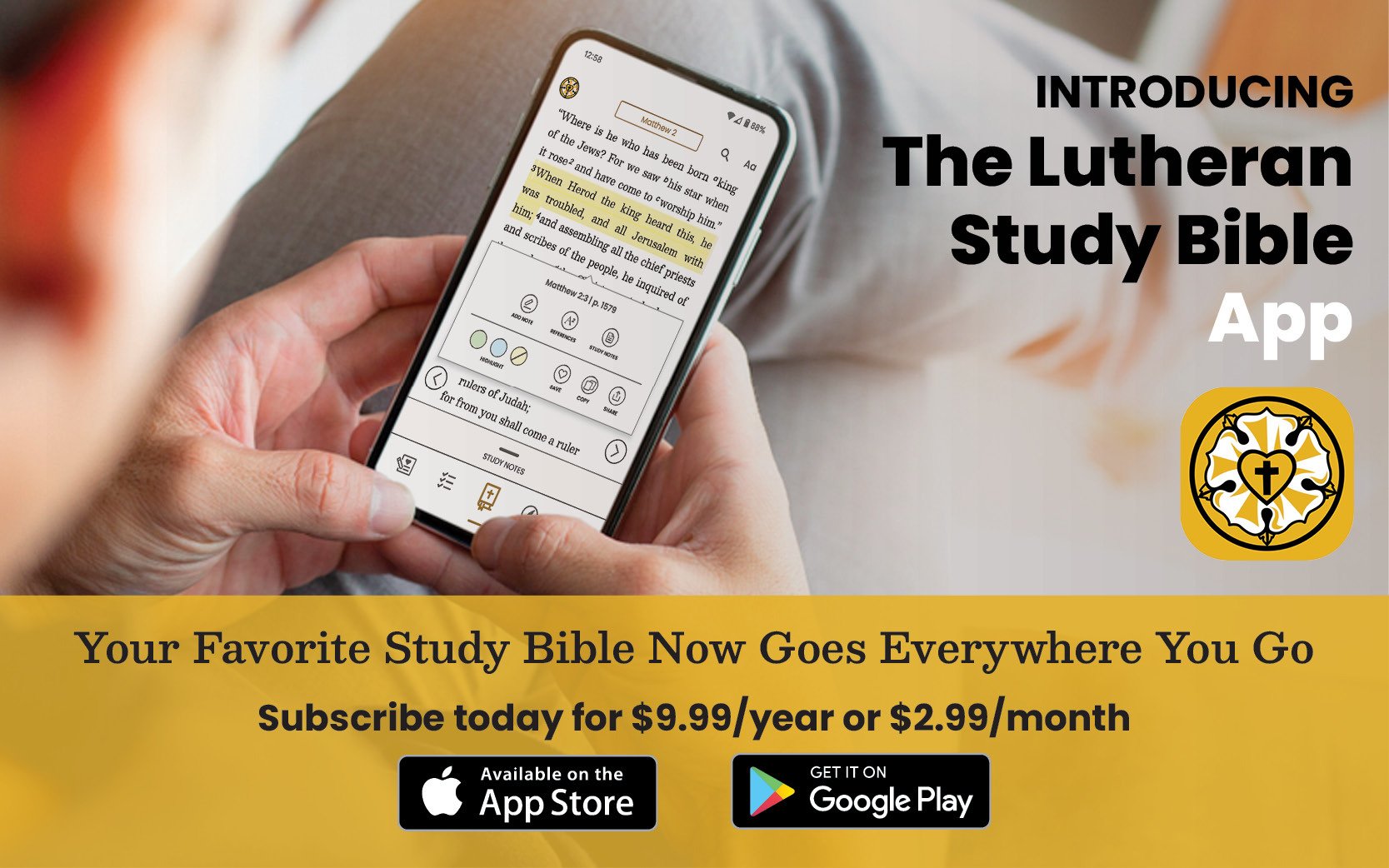Every Sunday, congregants listen to their pastor speak the Words of Institution at the celebration of the Lord's Supper. What is the connection between communion and the Word of God? Read below to see Albrecht Peters' interpretations on Luther's Catechism concerning the Verba testamenti and the Lord’s Supper.
In order to clarify the connection between the substance and the blessing of the Lord’s Supper, the reformer starts out once again with the Verba testamenti. Two elements are emphasized therein, both the promise of the real presence under that which is distributed: “That is My body that is offered and the blood of the covenant!” and also the promise of the forgiveness of sins: “Given and shed for you for the forgiveness of sins!”
Combining Presence and Forgiveness
Luther coalesces both aspects together in the Large Catechism by offering the insight: Christ’s body that was offered is not only a “certain pledge and sign” of the testament of the forgiveness of sins, it is in reality “even that selfsame treasure,” which the Lord instituted for us back upon Golgotha and that He distributes to us today in the Lord’s Supper. Only when both aspects are brought together can it be the “treasure through and in which we receive the forgiveness of sin” through Him on the wood of the cross, in Him today under bread and wine. The Verba testamenti identify for us what is offered and received under the gifts of the creation, Christ’s body that was offered and His blood of the covenant; the forgiveness of sins seems to be appropriated through these gifts as well.
But the reformer takes a significant step beyond what is intimated in such observations; that step differentiates him from both the concepts about consecration that are put forth during the Middle Ages and also from Reformed teaching. For Luther, the Word itself does not simply point to the elements; it remains the premier transmitter of the confrontation with Christ. According to Scholastic theory, the elements become the transmitter of the presence of Christ by means of the Words of Consecration that are spoken over them; the application thereof took place when one received them physically.
The Reformed View
According to the Reformed view, what happens physically becomes a sign-filled indicator of the confrontation with Christ within the believing heart; here, as well, the Word forfeits its character as that which conveys and gives a gift. Not without reason is Luther so passionate about constantly keeping the primary function of the Word front and center. For him, Christ’s body and blood, as our “treasure and gift . . . is comprehended in the Word and distributed to us.” But we also receive the forgiveness of sins “through the Word.” Both aspects, the body of the Lord and the forgiveness of sins, are “inserted through the Word into the sacrament.” Both are received by us as a blessing, but only by means of the heart that yearns expectantly for the Word. Luther ascribed such an extensive function to the Verba testamenti when he summarized his exegetical analysis in “Vom Abendmahl Christi”: “See therefore what a beautiful, extensive, wonderful thing it is, how everything is intertwined and is a sacramental essence.”
What the Lord's Supper is Within the Word
The Word is foremost; for without the Word the cup and bread would be nothing. Furthermore, without the bread and cup, the body and blood of Christ would not be there; without the body and blood of Christ, the New Testament would not be there; without the New Testament, the forgiveness of sins would not be there; without the forgiveness of sins life and salvation would not be there. The Word first connects to the bread and cup to make it a sacrament, the bread and cup conveys the body and blood of Christ, the body and blood of Christ conveys the New Testament, the New Testament conveys the forgiveness of sins, forgiveness of sins conveys eternal life and salvation. Behold, the Word of the Lord’s Supper administers and gives to us everything, which we comprehend with faith. Most clearly, the Word that displays what it means shows itself to be the reality that comprehends everything; admittedly, if such be true, the elements are used to convey the relationship between the body of Christ and the Verba.
To read more interpretations on Luther’s insights into the Lord’s Supper, order the commentary below.
















